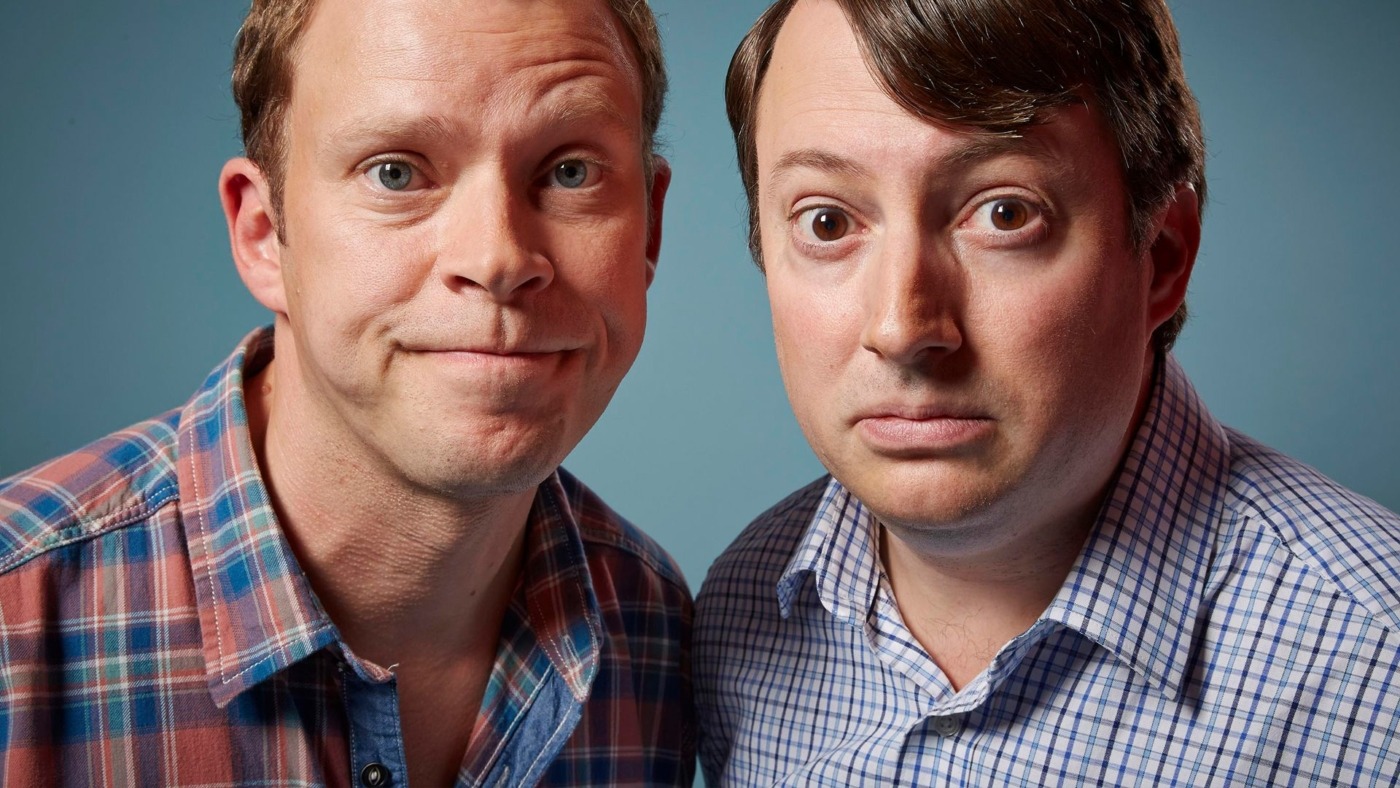Why I’ll always come back to Peep Show
British sitcoms are a rich tradition, and intensely awkward, cringe-inducing British sitcoms an even more unique one. There have been many in recent years: The Office, Fawlty Towers, and The Inbetweeners, but for many, the definitive example of the genre is Peep Show.
Stars David Mitchell and Robert Webb were catapulted to fame as a result of their work on this and their concurrent sketch show That Mitchell and Webb Look, and while they are not the main writers on Peep Show, their unique dynamic is as apparent in this as it is in their own work- Mitchell’s Mark is intellectual, socially inept, and in equal measures disdainful and jealous of Webb’s louche, party-loving Jeremy, who similarly considers Mark a fun-hating square while longing to attain his level of (relative) financial security and social respect.
Indeed, this is exactly what makes me come back to Peep Show, time and again. It is easy to forget, while watching Mark and Jeremy’s latest misadventure through your fingers, that they are fundamentally ordinary people enjoying normal life experiences. Of course, few of us have accidentally barbecued and eaten a dog (I cannot say any more on this topic for legal reasons) or had slices of pizza posted through a letterbox, but most of their other experiences are quite relatable. From pretending to take drugs in order to be accepted by your friends, or telling a web of lies that teeter on the precipice of discovery in order to impress somebody, Peep Show makes farcical the mundanity of everyday social interactions in a way that makes our own foibles all the more comforting.
Why do I keep watching Peep Show? Because it reminds me that everyday life is exactly as weird for everyone else.
Take Mark, for example. From his internal monologue, we learn he is cripplingly uncomfortable in his own skin, barely able to enjoy any moments of pleasure for fear of failure to come. He longs to be loved, respected, and even feared, but appears incapable of achieving anything more than what he has at the time. He is at times unsympathetic in the extreme- ‘dumping’ Jeremy’s crush Big Suze on his behalf, or hiding in the vestry during his own wedding, leaving his bride-to-be in tears as she refuses to be married to such a ‘horrible’ man. But outside of that, he is an average Joe- a mid-level management job, a few hobbies (history, gaming, writing a book), and a series of relatively successful romantic relationships.
Mark’s relationships are an excellent insight into this: while he appears to be entirely in the wrong in sabotaging his relationships with ex-wife Sophie and girlfriend Dobby (stalking them, mistrusting any male friends of theirs, and on both occasions organising a disastrous trip to the Quantocks), their own behaviour is far from perfect. Sophie is manipulative and addicted to drugs and alcohol, eventually using their son as a cruel bargaining chip following their separation. Dobby, on the other hand, spends a series keeping Mark on edge about moving in with him, eventually choosing a job in New York instead. This is not to place blame on them – Mark is clearly beyond the pale, but we sympathise more with these two romantic interests because we cannot hear their thoughts. I would be intrigued to watch the original pilot, which included Sophie as an equal POV character.
From pretending to take drugs in order to be accepted by your friends, or telling a web of lies that teeter on the precipice of discovery in order to impress somebody, Peep Show makes farcical the mundanity of everyday social interactions.
While Jeremy is more of a classic ‘failson’ (up to and including relying entirely on handouts from his wealthy mother), his few ventures into the world of work, whether ‘straight’ or as part of his vain dream of becoming a musician, prove somewhat successful and allow him to continue his lifestyle throughout nine seasons. Again, our insights into his worldview make him appear deluded, pathetic, and downright dangerous on occasions, but to the other characters he interacts with, he is a charming rebel. His array of romantic conquests and relative financial successes suggest that his façade is more effective than his own thoughts reveal. On very few occasions are the leading men taken to task for their actions, and on those occasions even we cannot sympathise.
Ultimately, Peep Show speaks to anyone who has felt uncomfortable even in moments of stability, scared even when things are going well. It is an (overblown) account of two relatively ordinary men, but with their innermost thoughts shared for all to hear. These thoughts are often bizarre, revealing the true motivations behind seemingly kind or thoughtful actions, but I defy you to admit you haven’t entertained similar notions yourself. It is comforting to know that your own foibles are not unique, and even the ‘normal’ characters in the programme are revealed to be flawed in very familiar ways, even as they reject the extremities of the main duo. Why do I keep watching Peep Show? Because it reminds me that everyday life is exactly as weird for everyone else, and I can take comfort from that.

Comments
Comments are closed here.